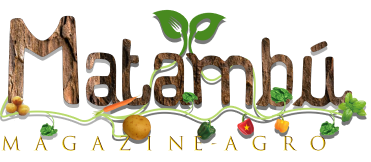[ad_1]
A FoodCo outlet.
In 1982, newlywed Sola Sun-Basorun determined to chase her lifelong dream of organising a grocery store. With the standard proceeds from her marriage ceremony and the assist of her husband, Adegbenga Sun-Basorun, she stop her job as a college librarian and expanded her recent fruits and vegetable facet enterprise into a correct grocery store, albeit a small one.
Today, 40 years after taking the plunge, Sun-Basorun’s enterprise, FoodCo, has grown to turn into one of many largest grocery store manufacturers in south-west Nigeria, exterior of Lagos, and is ranked among the many prime 5 grocery store chains within the nation. From one retailer, the corporate has expanded its portfolio to turn into an omnichannel retailer with pursuits in supermarkets, fast service eating places, manufacturing and leisure.
However, FoodCo’s journey was something however simple. After nearly 20 years of secure progress, the corporate bumped into main headwinds that nearly led to its collapse. The first 5 years on the flip of the millennium proved to be extraordinarily troublesome, main to the closure of about 80% of the corporate’s operations.
Ade Sun-Basorun, present chief govt officer and son of the founder, speaks in regards to the expertise. “What we are seeing today is the second generation of FoodCo. Between 2000 and 2004, we had to shut down all the outlets save for the oldest in Bodija, Ibadan. The business lost all its capital and things were so bad that a day with 10 customers was considered a good day during that period. That was, by far, the darkest period in our existence, ranking even higher than what we have had to deal with from the fallout of the Covid-19 pandemic.”
The years from 2005 to 2008 have been essential to FoodCo’s resurgence. That was when the one surviving retailer started to claw its means again up. “From 2004 to 2007, it felt like life was coming again into the virtually useless single retailer as enterprise began to choose up once more. By 2008 and onwards, the enterprise started to thrive once more.
So how did FoodCo climate the storm? Sola Sun-Basorun launched a number of strategic measures that helped regular the ship. One of those was negotiating credit score traces with distributors which helped release the cashflow for day-to-day operations. Almost all income have been reinvested into the enterprise and there was an incisive restructuring of inside processes, together with audit and controls, human useful resource growth and board governance. By 2010, FoodCo opened one other outlet.

Ade Sun-Basorun, present CEO of FoodCo and son of the founder.
That expertise would supply the springboard for a much-needed reset that enabled the corporate efficiently reposition itself into one of many success tales of Nigeria’s retail sector. In 2020, when most sectors of the financial system have been grappling with the disruptions of the Covid-19 pandemic, FoodCo expanded its footprint with six shops, employed extra workers and was named one of many quickest rising manufacturers inside the class.
Diversifying the providing
Sun-Basorun says that the corporate owes its progress to its potential to adapt to Nigeria’s always altering enterprise setting. “One of our strongest attributes is our flexibility and willingness to frequently adapt to altering market wants by way of centered management, innovation and a customer support orientation. Even as one of many pioneers of recent retail in Nigeria, we’ve got continued to problem ourselves to evolve with the instances. For occasion, we’re one of many first companies within the nation to efficiently experiment with the co-location idea, creating a one-stop-shop for purchasers to shop, eat and play.
“In response to the standard dearth of high quality merchandise in neighbourhood shops and pushed by the necessity to convey fashionable retail nearer to underserved communities, we launched FoodCo QuickShops, a chain of fit-for-purpose neighbourhood shops that inventory high quality grocery, private care and residential necessities. So, when clients run out of private care gadgets at house and want a fast repair, they’re positive of the identical high quality merchandise from the QuickShop like they might get within the common mall.
FoodCo continues to make vital investments in rising the Nigerian fashionable retail sector. It actively helps the MSME neighborhood and companions with a rising checklist of small companies and native producers who it gives with access-to-market alternatives leveraging its huge community throughout the south-west area of the nation. The firm additionally organises an annual #BigBreakWithFoodCo competitors focused at budding entrepreneurs between the ages of 18 and 35 years. Participants are supplied free enterprise teaching whereas winners have alternative to inventory their merchandise commission-free throughout FoodCo shops.
In 2018, FoodCo established a two-year fellowship programme geared in direction of coaching prime expertise. It recruits MBAs and post-graduates concerned about constructing a long-term profession in retail and places them in the course of real-life enterprise management operations.
Moving into the longer term, FoodCo is wanting to maintain its progress trajectory with a number of expansions deliberate for Lagos and throughout different main cities in south-west Nigeria.
The firm additionally intends to broaden its manufacturing arm. Currently, its Sunfresh bread model boasts six variants whereas its ice cream is available in 16 flavours. Sunfresh premium water, launched final 12 months, has additionally turn into a sturdy model inside the area.
Demand for formal retail slowly growing
The want for formal retail is rising in Nigeria as customers have gotten a style for the extra snug setting and atmosphere any such procuring affords, Sun-Basorun mentioned in an earlier interview with How we made it in Africa.
But he doesn’t consider retailers want to be in a giant fashionable shopping center to supply this. Other fashions – equivalent to smaller centres and strip malls – are coming to market, providing each proximity and selection to buyers, he explains.
“We are starting to see business scale within the retail sector and formats are changing. Eight years ago, we saw a proliferation of 30,000m² Grade A malls.” But few retailers can revenue on the value level of the worldwide malls, he explains. “It is a credible format and an exciting development, but we need diversity. You can build your own centre with financing, land and structures that meet your needs.”
Sun-Basorun says the penetration of recent retail in Nigeria continues to be small – lower than 10% of the entire market. The majority of gross sales are by way of casual and semi-formal channels.
“However, there is a sizeable gulf between demand for more formal shopping and supply. The industry will respond to this in the coming years and competition will grow. It creates significant opportunities for retailers like us.”
Related articles
[ad_2]
Source link




![Africa's manufacturing sector in 2021 [Business Africa]](https://matambu-agromag.com/wp-content/uploads/2022/06/1656085363_hqdefault-120x86.jpg)





